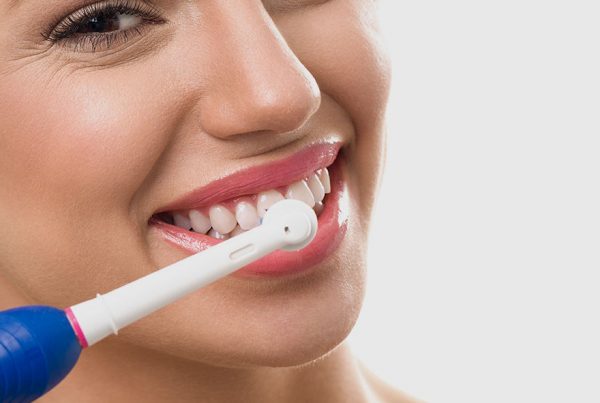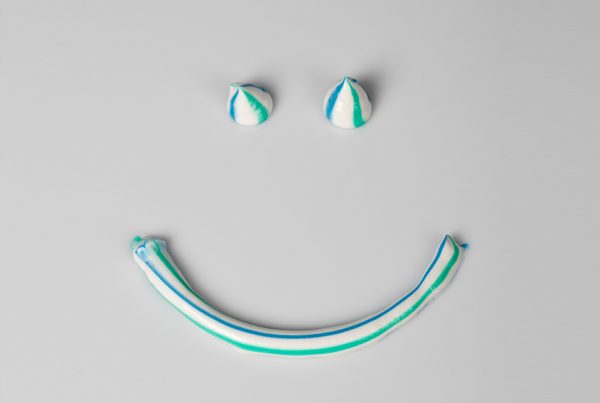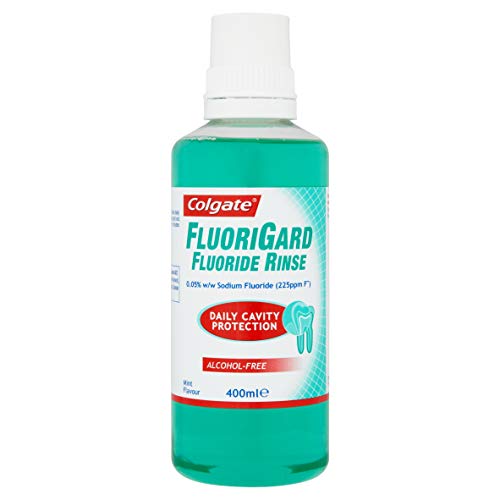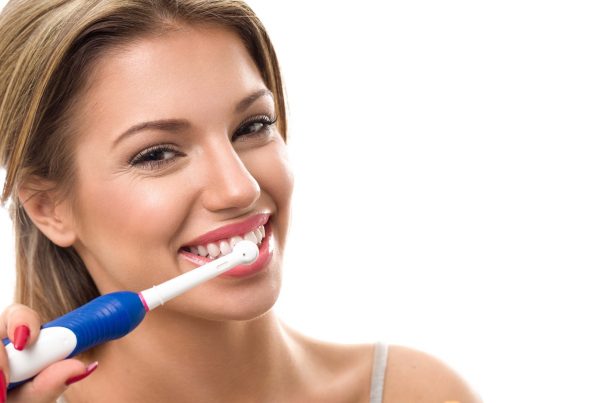In this article, we have included everything that you need to know about mouthwash. To be honest, there isn’t much you need to know. To give you a quick summary, mouthwash is not essential but it can be helpful for preventing against tooth decay and other dental disease if used correctly. If you are going to use a mouthwash, it must contain fluoride. Continue reading this article and we will go through those points in a little more detail. We will also give you our opinion on what is currently the best mouthwash available.
Why use mouthwash?
Using mouthwash can be a great addition to your dental health routine. It is not a replacement for brushing your teeth twice a day but it can still help to protect your teeth against tooth decay and gum disease. Tooth brushing is required to physically remove plaque (a soft build up of bacteria) whereas mouthwash cannot do this.
Your mouthwash must contain fluoride, otherwise there is absolutely no point in using it. Fluoride adds itself to the surface of your teeth, strengthening them. Fluoride also slows the rate that bacteria in plaque grow and multiply. It is the key ingredient in any toothpaste and it’s exactly the same with mouthwash.
If your mouthwash doesn’t contain fluoride, it’s useless.
How much fluoride should my mouthwash contain?
When buying a bottle of mouthwash, take a look at the ingredients on the back. Don’t worry if a lot of the ingredients look unfamiliar. You need to be looking for fluoride. It will either say something like Sodium fluoride or its chemical formula which is NaF.
Once you’ve found this, you need to check the amount of fluoride. Your mouthwash should contain 0.05% Sodium fluoride (NaF). The label should either say 0.05% NaF or 225PPM F. PPM means ‘parts per million’. Both 0.05% and 225PPM mean exactly the same thing. As long as your mouthwash contains this, you are onto a winner!
How and when should I use mouthwash?
Mouthwash must be used at a different time to brushing!
This may seem to go against how most of us think we should use mouthwash. All of the adverts show people brushing their teeth and then using a mouthwash straight after.
If you have read the toothpaste article you will know that after you brush, you should spit out the toothpaste but DO NOT RINSE. This leaves a bit of toothpaste on your teeth that keeps protecting your mouth.
As mentioned above, the key ingredient in any mouthwash is the same as in toothpaste; fluoride. When you rinse with mouthwash straight after you brush, you are just washing away the good stuff in the toothpaste and swapping it for the mouthwash. You are swapping like with like. Fluoride for fluoride.
So there’s not much point in using a mouthwash at the same time as brushing your teeth.
But mouthwash can be really good at protecting your teeth when used at a separate time to brushing. A good time to rinse with a fluoride mouthwash is after lunch or when you come in from a day out. As long as it is not straight after brushing, it is beneficial.
If you don’t use mouthwash, it’s not key. Brushing to remove plaque will always be much more effective than rinsing with mouthwash. However, the extra fluoride can make the difference in protecting against cavities and tooth decay. If you have previously suffered with lots of cavities, we would strongly recommend that you use a fluoride mouthwash.

Should children be using mouthwash?
Advice from Public Health England says that children under 7 years old should not use mouthwash. They recommend that children aged 7 years and older who have had previous tooth decay should use a mouthwash at a different time to brushing. If your child is aged 7 years or older and has not suffered with tooth decay, it is your choice whether they use it or not.
If your child is aged 7 years old or older, they can use the same fluoride mouthwash that an adult would use as long as they spit it out and do not swallow it. As mentioned above, this should be done at a separate time from tooth brushing so that your child getting the full strengthening benefit of the fluoride.
When looking at the label, the mouthwash should contain the same amount of fluoride as in mouthwash for an adult as described above. This is 0.05% (otherwise called 225PPM) Sodium fluoride (NaF).
What about alcohol mouthwash?
No, no, no. You should never use an alcohol mouthwash. Alcohol is one of the leading causes of oral cancer (mouth cancer). If you swish it around your mouth by using an alcohol mouthwash, you are putting yourself at unnecessary risk. Please do not do this.
Antibacterial mouthwash such as Corsodyl
Antibacterial mouthwashes are heavily advertised. They are quite popular, even among dentists who regularly recommend them. The most famous of these in Corsodyl. Corsodyl contains an antibacterial called chlorohexidine which kills bacteria that cause gum disease.
Although chlorohexidine does kill bacteria that cause gum disease, when used in a mouthwash, it does not stay in your mouth long enough to have any real effect. Evidence has shown that Corsodyl mouthwash is not particularly effective at improving the health of your gums.
The big downside of Corsodyl mouthwash is that it can heavily stain your teeth. This can be removed by your dentist or hygienist but it’s not very nice.
Which is the best mouthwash available in 2018?
As long as your mouthwash contains enough fluoride, it is as good as any other. We have added a link to Colgate Fluoriguard mouthwash below that can be purchased on Amazon because this is usually the mouthwash that NHS dentists will prescribe for high needs patients. It is an excellent mouthwash which is brilliant at strengthening teeth against tooth decay. However, if you can find another mouthwash with the same amount of fluoride, it will still be effective.
- Mouthwash - Discover the secret to a winning smile with the Colgate FluoriGard alcohol free daily rinse mouthwash
- Protection - Helps to prevents cavities with triple protection from plaque acids.
- Fluoride - The fluoride works in three ways to protect your teeth from attack by acids produced from sugars.
- Formula - This triple action formula reduces the formation of plaque acids, prevents mineral loss caused by plaque acids and promotes remineralisation of early decay.
- Enamel Friendly - This mouth rinse is enamel friendly so you can rinse with confidence.
Where do we get our information from?
All of the information on The Online Dentist website is written by dental professionals. Our advice is based on evidence collected and reviewed by Public Health England.
Keep updated with the Online Dentist newslettersign up today
Recent Articles
 Tooth brushing is the best way we have to remove bacteria from our mouths. The majority of problems with your teeth are caused by bacteria. Bacteria making holes. Bacteria damaging...
Tooth brushing is the best way we have to remove bacteria from our mouths. The majority of problems with your teeth are caused by bacteria. Bacteria making holes. Bacteria damaging...
 This article is all about toothpaste, what should be in it and why you should use it when brushing your teeth. Forgive me but I'm going to start out with...
This article is all about toothpaste, what should be in it and why you should use it when brushing your teeth. Forgive me but I'm going to start out with...





